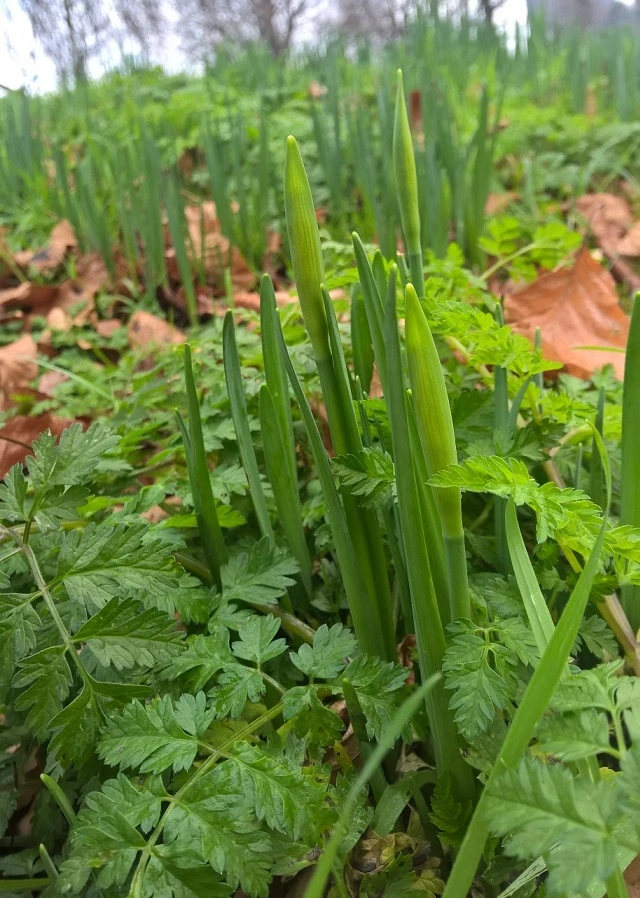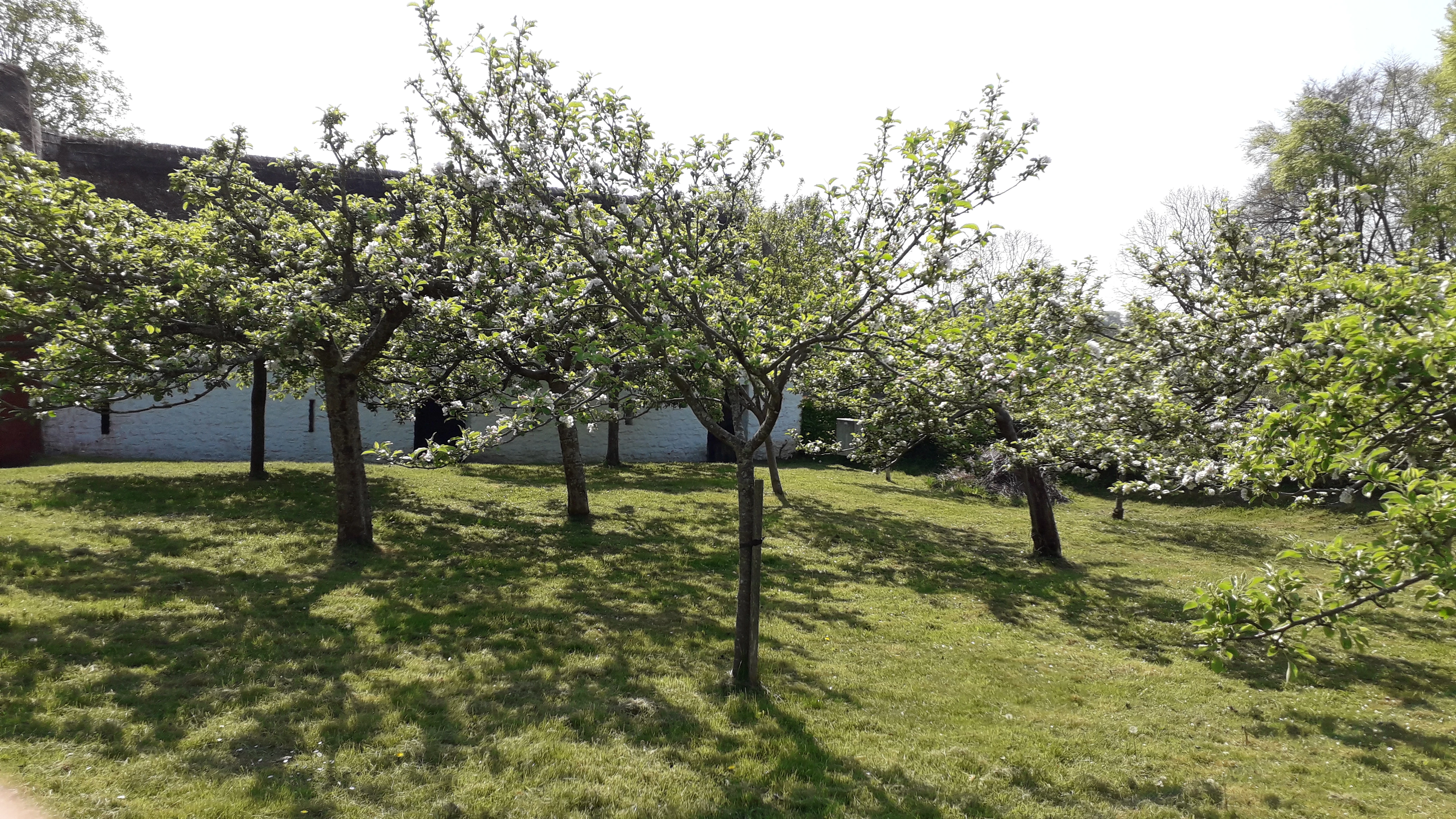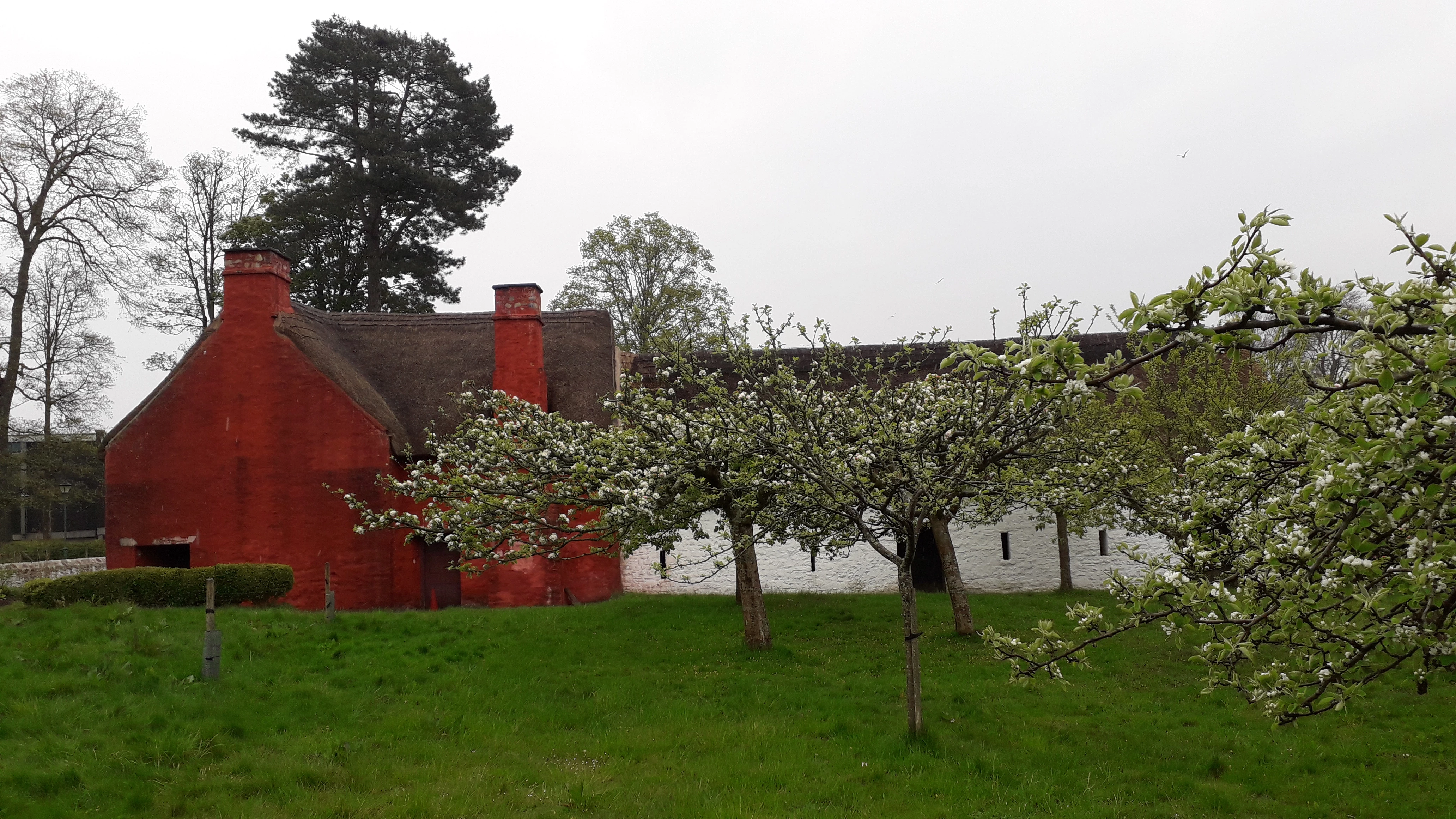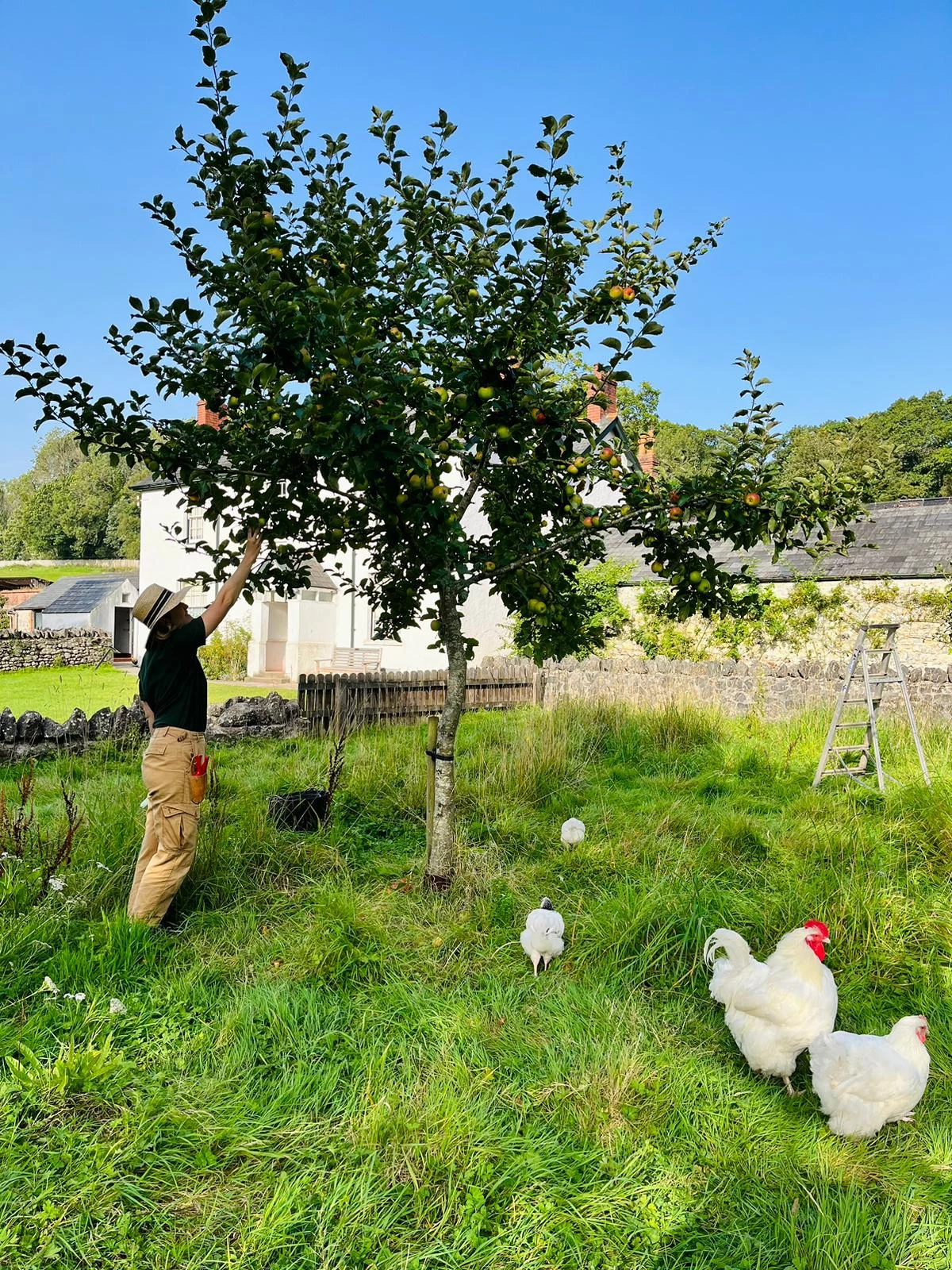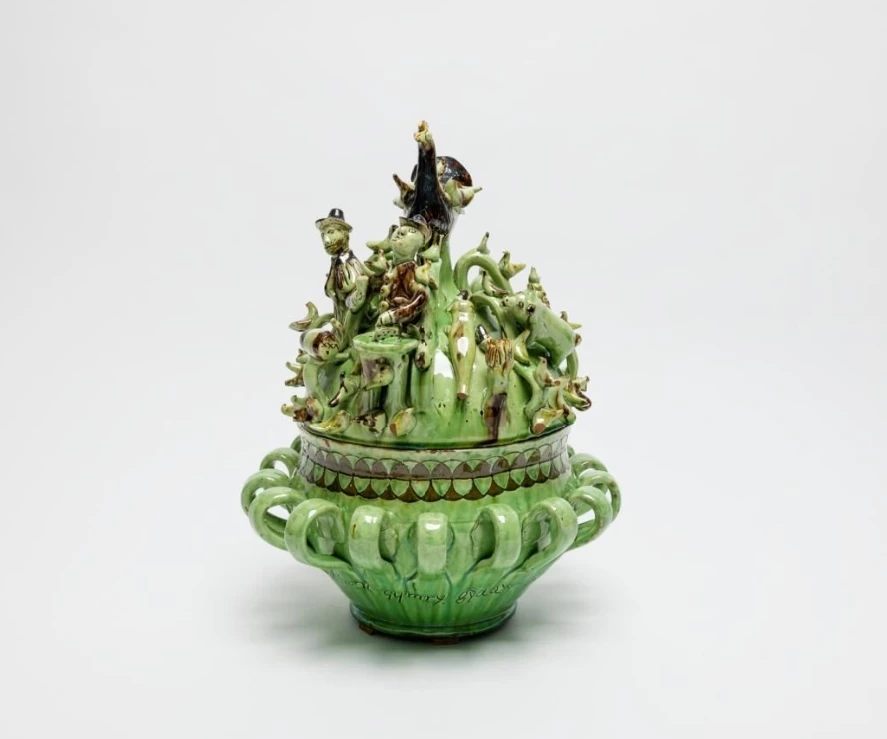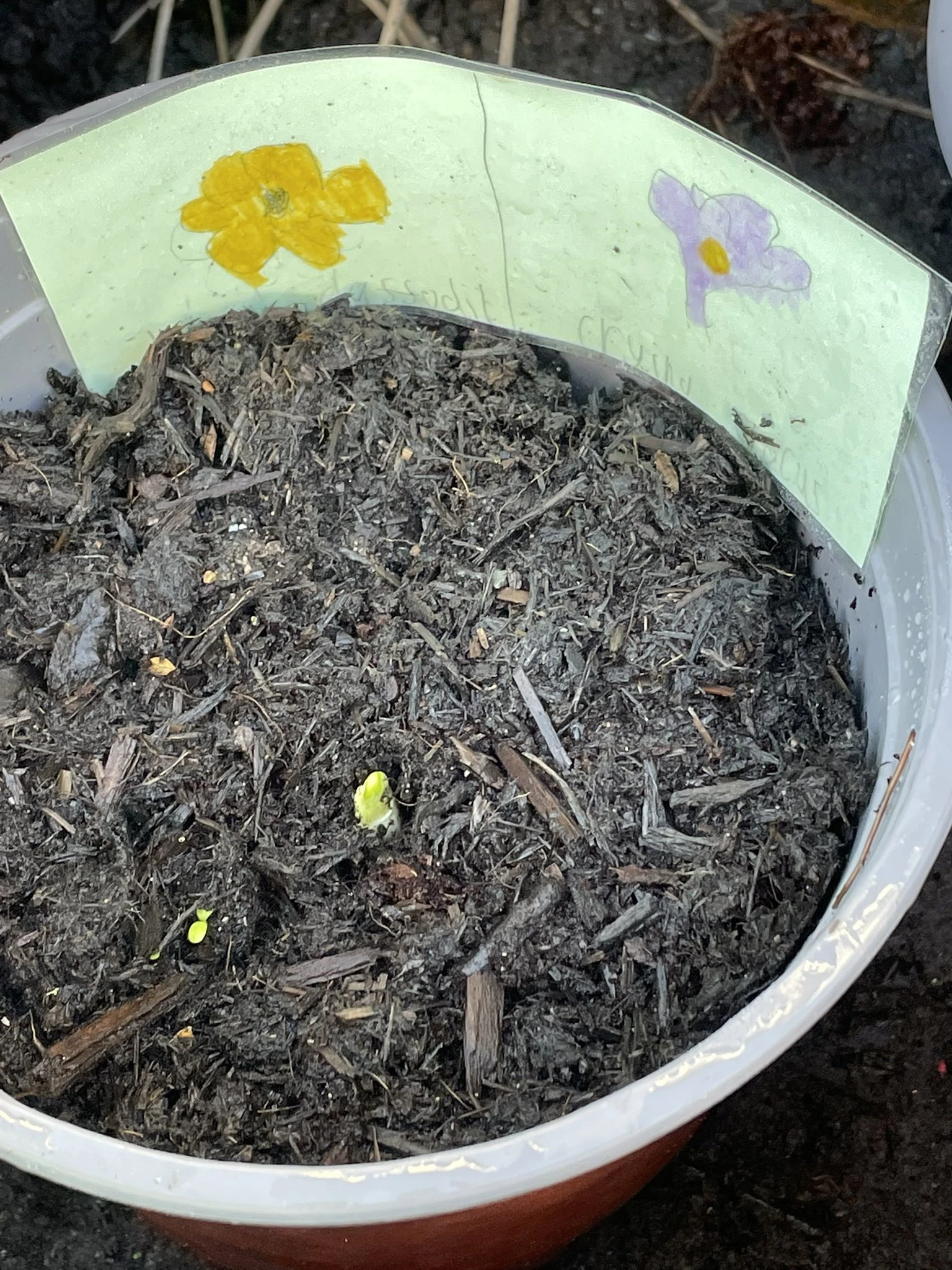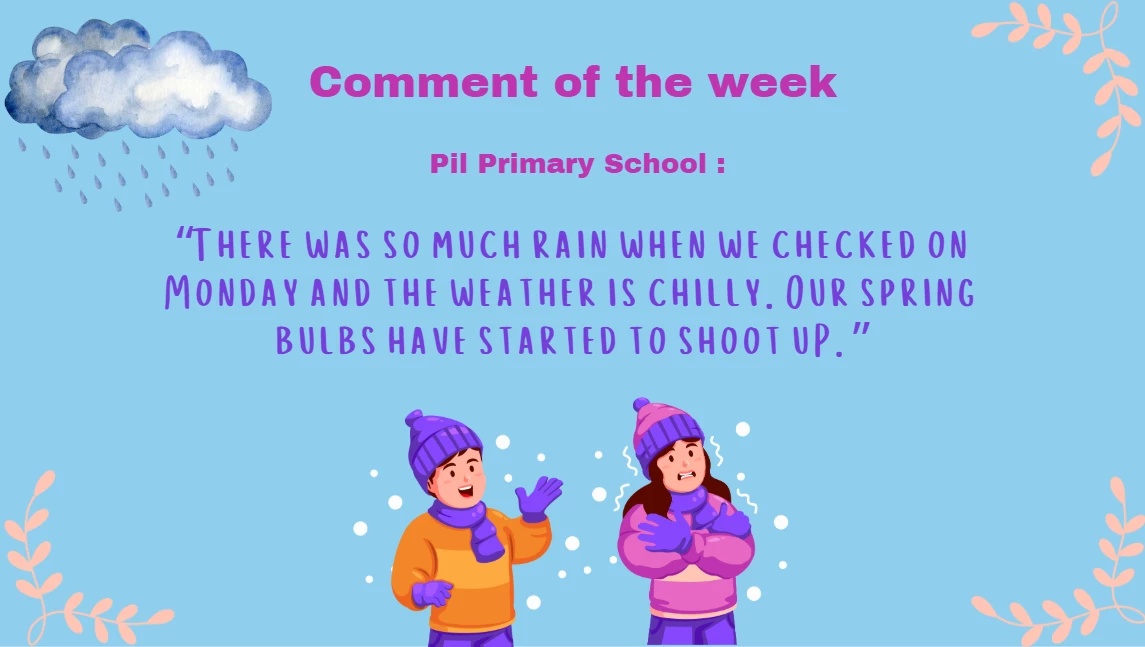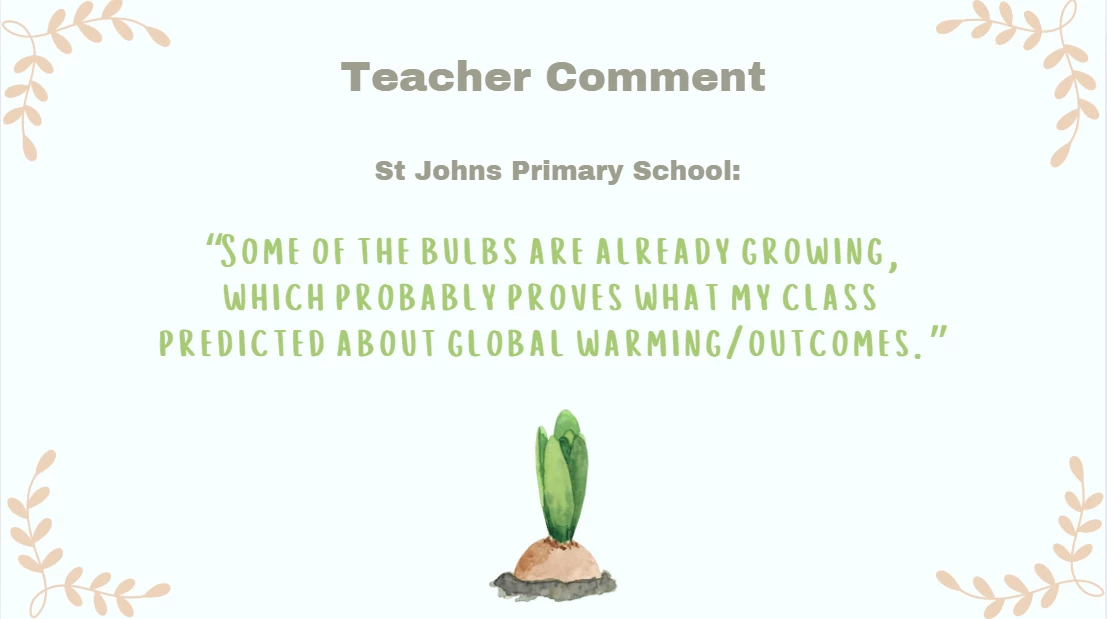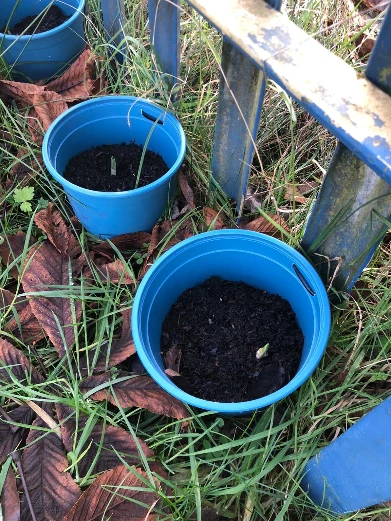Hi Bulb Buddies,
Thank you for all the weather data you have entered to the website so far. Please try to get all your data uploaded this week, as The Edina Trust will be using it to predict when our plants might flower!
I have seen my first daffodil in bloom this week! This feels very early. Have any of you seen any early signs of spring? Please let me know what you've seen and how your plants are doing when you share your comments this week. Do any of your plants have flower buds forming yet? You can use resources on the website to help prepare for taking flower records: Step 5: Keeping flower records (January - March)
Are you taking part in the BulbCast competition this year? If so, you could take video footage of your plants at different stages to use in your entry. I can't wait to see what you come up with. Remember to read the supporting resources that outline how the task can be structured so that everyone has a role to play: Bulbcast competition
January saw some dramatic weather, and this was reflected in your weather comments (see these below). Lots of you reported school closures, powerful winds, low temperatures and some reported snow and frost! Many of you were impacted by Storm Eowyn on the 24th of the month. This was the fifth named storm this storm season (September-August) and the first red warning for wind in 2025. Wind speeds of over 90mph were recorded in parts of Northern Ireland, Wales, and Scotland, and a 100mph gust was recorded in Drumalbin, Lanarkshire!
Days after storm Eowyn, storm Herminia reached the UK bringing heavy rain to parts of England and Wales. Some of you may have wondered why the storm names jumped from E to H! This is because storm Herminia had already been named by the Spanish Meteorological Service before it reached us. The next storm named by the UK will be Storm Floris! More information on named storms can be found here: Weathering the Storm
January Weather Summary
> January’s temperatures were colder than usual. All four nations recorded below-average temperatures, making it a chilly start to the year.
A fascinating fact for our Spring Bulb scientists: what we now consider a "cold" January would have been considered average in the past. The 1961-1990 January mean temperature was 3°C (the average for this year), while today’s 1991-2020 average is 3.9°C (making this year 0.9°C bellow the average). This highlights how climate patterns are shifting over time!
> Rainfall was mixed across the country. Southern England experienced above-average rainfall, while Scotland and Northern Ireland were much drier than usual.
> Despite the cold and stormy spells, January turned out to be one of the sunniest on record! The UK saw 61.8 hours of sunshine, making it the fifth sunniest January since records began in 1910.
A fascinating fact for our Spring Bulb scientists: four of the five sunniest Januarys have all occurred in the 21st century (that's since January 2001).
Keep up the great work observing and recording your data Bulb Buddies!
Professor Plant
Comments from schools:
Storm and School Closures
Irvinestown Primary School: School was closed on Friday due to the red weather warning.
Professor Plant: It’s always best to stay safe during severe weather! I hope you were able to check on your plants when you returned.
Logan Primary School: We were not at school on Friday due to the storm.
Professor Plant: I hope you and your plants were safe from the storm. Did you notice any changes in your garden when you returned?
Scarva Primary School: We had to close on Friday because of Storm Eowyn and a red weather warning so we could not record weather data.
Professor Plant: Storms can be very disruptive! I appreciate you keeping track of the data when possible.
St Mary’s Primary – Maguiresbridge:We were unable to get a reading on Friday as the school was off with the storm (Eowyn). We have lost some plants and pots because they have been lifted with the wind.
Professor Plant: Oh no! I’m sorry to hear about the damage. Hopefully, you can replant some bulbs, and they’ll still have a chance to grow!
Meldrum Primary School: Bad storm on Friday, could not get any data.
Professor Plant: That’s understandable! I hope your plants weren’t damaged. Did you notice any effects on your garden afterward?
St John’s Primary: No weather recorded for Friday 24th as school was closed due to the storm.
Professor Plant: That’s okay! It’s always important to stay safe in bad weather.
Wellshot Primary School: School was closed on Friday because of the storm.
Professor Plant: I hope the storm didn’t cause too much damage to your plants!
Langbank Primary School: Our school was closed on Friday because of Storm Eowyn so we did not get the weather data.
Professor Plant: I appreciate you updating me despite the closure. Well done for staying safe during the storm.
Ysgol Porth Y Felin: We had a big storm last night.
Professor Plant: I hope your plants made it through safely! Storms can bring a lot of rain, which can be helpful or harmful depending on how strong the wind is.
Stanford in the Vale Primary: We had Storm Eowyn on Friday.
Professor Plant: I hope you and your plants were okay! Did you notice any changes when you came back to school?
Ysgol Gymraeg Morswyn: Dim cofnod ar dydd Gwener oherwydd fod yr ysgol ar gau oherwydd Storm Eowyn. (No record on Friday because the school was closed due to Storm Eowyn.)
Professor Plant: Diolch am roi gwybod i mi. Mae'n bwysig cadw'n ddiogel yn ystod stormydd. (Thanks for letting me know. It is important to stay safe during storms.)
Cold and Icy Weather
Doonfoot Primary School: It was freezing.
Professor Plant: Sounds like a chilly week! Did you notice frost on the ground or your plants?
Ysgol Tycroes: This week has been very cold. We have had snow and most mornings have been very frosty. The temperature has been as low as -1°C.
Professor Plant: Frosty mornings can be beautiful but challenging for plants! Well done for braving the cold to get your readings!
Pil Primary School: The weather has been very cold this week.
Professor Plant: Cold weather can slow plant growth. I wonder if you’ll see a change once it warms up!
Cornist Park C.P: “There is a lot of snow and it is very cold, it feels like -1 degrees.” “We have had snow, rain, sleet, and hail, the wind is making it feel like -1 degrees.” “Today the hail has frozen the roads and they are icy, it is very cold.” “The ice on the path and road is very slippy, it is cold.” “We have ice and it is very cold, the wind makes it feel like -5 degrees.”
Professor Plant: Thank you all for sharing your weather comments. It sounds like quite a chilly week with the snow and icy conditions! Make sure to stay safe and warm everyone, and well done for collecting your weather readings in these cold temperatures!
Stanford in the Vale Primary: Very cold and the ice has settled in.
Professor Plant: Stay careful on those icy paths! It’s important to stay safe in these conditions.
Bwlchgwyn Primary School: Lots of snow and ice covering our rain gauge all week.
Professor Plant: It sounds like you've had quite a bit of snow! Remember to bring your rain gauge inside for the snow to melt. Do you think the reading will be higher or lower once the snow has melted?
Meldrum Primary School: A lot of rain and snow at the start of the week and pretty cold throughout the week.
Professor Plant: Rain and snow can sometimes create difficult conditions, but it’s a good opportunity to observe how the weather affects both the plants and the surroundings. Well done Bulb Buddies.
Observations of Rain and Wet Conditions
Gavinburn Primary School: Normal weather for this time of year.
Professor Plant: It’s great that you are noticing seasonal patterns! Do you think this will help predict when your plants will flower?
Cornist Park C.P: It has been very cold and lots of rain this week. Our plants must feel cold.
Professor Plant: Plants can be quite hardy in the cold! They’ll start growing faster once it warms up.
Ysgol Porth Y Felin: Very wet.
Professor Plant: Lots of rain can help plants grow, but too much might cause waterlogging. Keep an eye on them!
Stanford in the Vale Primary: A lotta rain this week, mate.
Professor Plant: Rainy weeks can be great for plant growth! Did you see any changes in your garden, mateys?
Plant Growth and Gardening Observations
Ysgol Tycroes: All of our bulbs have sprouted stems and leaves. We have been learning about what a plant needs to grow strong and how a plant makes its own food called photosynthesis.
Professor Plant: That’s fantastic! Photosynthesis is key to plant survival. I’m excited to hear how your plants continue to grow.
Ysgol Pennant: Roedden ni wedi plannu yr planhigyn oedd wedi chwythu ffwrdd ar y dydd mawrth. (We replanted the plant that had blown away on Tuesday.)
Professor Plant: Gwaith da! Gobeithio bydd y planhigyn yn parhau i dyfu. (Well done! I hope the plant continues to grow.)
Bwlchgwyn Primary School: We can see some sprouts opening.
Professor Plant: That’s wonderful! Your plants are making great progress. Keep watching for their next stage of growth.
St Mary’s Primary – Maguiresbridge: We have noticed that the bulbs have all started to sprout.
Professor Plant: That’s exciting news! Keep an eye on your bulbs, they are on their way to flowering.
Henllys Church in Wales: Plants coming through.
Professor Plant: Great to hear! Keep monitoring them for new growth.
Langbank Primary School: Most of the pots/bulbs are starting to grow
Professor Plant: Fantastic news! Keep an eye on them!
Ysgol Tycroes: Nearly all of our bulbs now have shoots coming out of them.
Professor Plant: Wonderful news about the bulbs! Keep up the good work!
Ysgol Llanddulas: Some of our bulbs have grown a lot. No flowers still.
Professor Plant: That’s fantastic progress! Bulbs are getting ready to bloom, but sometimes they take a little more time to flower. Keep observing them, and I’m sure you’ll see the flowers soon enough.
Data Collection
St Joseph's Cathedral: We are very sorry that we have forgotten to record these past weeks. Once again, we are deeply sorry for the inconvenience that we have made for your research.
Professor Plant: That’s okay! Thank you for letting me know. Keeping records is a great habit, and I appreciate your efforts.
Ysgol Llanddulas: I did this on Monday because we had a new teacher on Friday, and they did not know how to log us on.
Professor Plant: No worries! It’s great that you caught up with the data.
Roaring Reptiles - Ysgol Llanddulas:We did not get weather records on Friday because our school shut due to a burst water pipe.
Professor Plant: That sounds like an unexpected event! I hope everything was fixed quickly.
Ysgol Porth Y Felin: We had no school on Monday and then 2 snow days.
Professor Plant: Snow days are always exciting! Did you notice any effects on your plants afterward?
